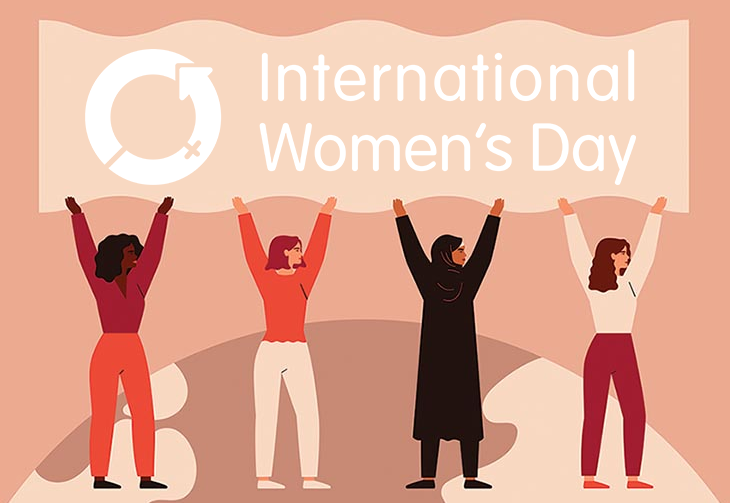BANGKOK: To mark International Women’s Day (IWD) on 8 March 2023, Asia’s largest international hotel operator, Accor, grasped the opportunity to reiterate its commitment to ensuring gender equality, wage parity and protecting women’s rights.
But the challenges of gender inequality in the workplace impact all sectors of the tourism industry in the region, large and small, not just the high flyers; airlines and global hotel corporations.

International Women’s Day has been celebrated for over a century, but more than ever, the quest for gender equality and eradicating sexism in the workplace remains the ultimate goal.
How does it impact Asia’s tourism industry? It certainly involves every industry sector and impacts the aspirations and dreams of millions of women who strive to succeed and become CEOs and industry leaders on merit alone.
We asked the Mekong Tourism Coordinating Office executive director Suvimol (Dee) Thanasarakij, to share her views on the challenges the tourism industry faces to end gender discrimination in the workplace.

(Q) What would be the direction to take to ensure gender discrimination ends in tourism?
(A) “The main role of women by nature is being a wife, a mother and often a “household manager”. Some organisations are reluctant to hire pregnant women or women with young children. They feel these people tend to be distracted by the baby/children and cannot perform at their highest capacity. Pregnant women have a lower chance of getting a job offer. During pregnancy, companies believe they will have to deal with a maternity leave request. It could also lead to the position becoming vacant again.
There is a need to ensure women with young children and pregnant women are not disadvantaged when applying for jobs. This negative mindset has to be fixed. The value of women should be recognised. Changing this perspective requires much work and cooperation among the public and private sectors and the community to set the right policy to achieve gender equality.
(Q) Have you encountered gender inequality during your spell at MTCO, and how would you advise women aspiring to head tourism-related businesses, associations or NGOs?
At MTCO, the GMS member countries ensure equal and fair treatment for both men and women. However, I know that there is a gender inequality issue almost everywhere. Although women represent more than half of the workforce in the tourism sector, only 20% hold management positions. And only 8% hold high positions with high responsibilities. These figures clearly show that the role of women in the tourism sector is underrated, and women are not given equal opportunities and access to career growth compared to men.
Women in tourism are seen as providing a supporting role rather than a leading role. Part of the reason is that women must prioritise their families. That’s why we often see women doing seasonal or informal jobs to allocate more time for families. As a wife and a mother, I deeply understand and sympathise with them. I faced these challenges and struggled to overcome them for several years. I am one of many women having a career dream to pursue while having a strong determination to be a good mother and wife. It’s tough.
My advice (especially if you are a wife and a mom) is: Do the job you love that allows you to have a work-life balance, allowing you to work from home or work hybrid. This would allow you to work flexible hours while spending quality time with the family. If you have a work-life balance, you can remain working for long enough to grow in your career and expand your network. Above all, the family remains our top priority.
(Q) Are there examples of discrimination in tourism that cause you great concern?
(A) I am concerned about sexual harassment in the hospitality and travel industry. Workers in bars, restaurants, clubs and hotels experience sexual harassment so often that it becomes common.
Some people don’t treat staff in bars, clubs and hotels professionally and respectfully. I urge authorities to strengthen the law around sexual harassment and reinstate an employer’s duty to protect staff from abusive clients.
Sexual harassment also occurs on other occasions during working hours, such as at social functions where people mingle and gather. I would urge each individual to treat one another professionally. Particularly in Asian culture, being cautious about physical contact is essential.
Other inequalities are unequal benefits and salaries for men and women. Women are often given lower pay than men, although they are in the same position and responsibilities. In many countries in Asia, maternity leave is short.
(Q) Do you have specific comments on discrimination in Asia’s tourism workplace?
(A) Asian women are brought up to be polite, not to voice their thoughts and keep quiet. Although I am proud to be Asian, unfortunately, Asian women are often seen as unfit for leadership roles compared to men and women from western countries.
It is one of the challenges for Asian women who pursue leadership roles. However, I have seen positive progress over the years, as several Asian women have succeeded and are outgoing and outspoken. The gap between Western and Asian women has become narrower, but the inequality between men and women still exists.
Achieving gender equality needs a lot of work from all sectors, not just in the tourism sector. It requires genuine determination to make it happen and walk the talk.







